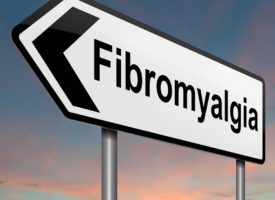Fibromyalgia has an identity problem. For years, doctors dismissed fibromyalgia pain as a psychological disorder and often labeled sufferers as hypochondriacs or malingerers. It was then considered a disease of the muscles and fibrous tissues or a rheumatic or autoimmune condition.
Current research points toward fibromyalgia as a central nervous system disorder marked by abnormal sensory processing. But the truth is we don’t really know what causes it, nor do we have any lab tests or biomarkers to distinguish it. Instead, doctors rule out other conditions and diagnose fibromyalgia based on the typical clustering of symptoms: pain in specific soft tissue “tender points,” physical and mental fatigue, sleep disturbances, and mood and cognitive changes.
Conventional medicine also doesn’t offer effective treatments for fibromyalgia. This tricky condition rarely responds to the usual pain meds, so patients end up on extensive, expensive, poorly tolerated—and largely ineffective—cocktails of drugs (hello, polypharmacy!) for their various symptoms.
Drugs for Fibromyalgia Pain Are Generally Ineffective…
The FDA has approved three medications as treatments for fibromyalgia: the anticonvulsant Lyrica (pregabalin) and two antidepressant drugs, Cymbalta (duloxetine) and Savella (milnacipran).
If you’ve seen the advertisements featuring happy, active women singing the praises of these drugs, you’d think they were the greatest things since sliced bread. They most definitely are not. These medications touted to relieve fibromyalgia pain and other symptoms—at a cost of a whopping $200–$300 a month—benefit only a small minority of patients. Furthermore, they have a boatload of adverse effects, such as nausea, dry mouth, constipation, headache, dizziness, and insomnia. Less common, but more serious side effects include suicidal thoughts, liver damage, bleeding, high blood pressure, and urinary problems.
A recent review of 10 clinical trials involving 6,000 women taking Cymbalta, Savella, or a placebo found the meds did nothing to combat fatigue or enhance sleep or quality of life. Twenty-two percent of the study participants reported improvements in pain—but 21 percent discontinued the drugs because they couldn’t tolerate the side effects. Lyrica isn’t much better. Another meta-analysis revealed only “a small benefit over placebo in reducing pain and sleep problems.”
Treating fibromyalgia pain and other symptoms with drugs alone obviously doesn’t work. So what are patients to do? At Whitaker Wellness, we offer natural treatments for fibromyalgia—a multifaceted approach that includes lifestyle changes, targeted nutritional supplements, and a handful of effective therapies rarely used by conventional physicians.
…But LDN Works
My go-to treatment for fibromyalgia is LDN. Used primarily for autoimmune disorders, cancer, and other immune system challenges, this versatile and highly effective prescription drug is also a terrific treatment for fibromyalgia.
Joy, a registered nurse from Michigan, suffered with extreme fatigue and achiness associated with fibromyalgia and chronic fatigue for years. Her symptoms were so severe that she had to quit working, and there were many days when she couldn’t even get out of bed. She tried everything from the usual drugs to heavy metals testing, but nothing helped.
Then she read about LDN in my newsletter, Health & Healing, and asked her doctor for a prescription. Within a week her pain subsided, and after a couple of months her energy rebounded. Joy shared her success with a support group she works with, and about 40 of them have started on LDN, all with positive results.
Ask most doctors about LDN and you’ll either get a blank stare or be told it is a treatment for opioid and alcohol addiction (which it is, but in much larger doses). Fortunately, growing patient enthusiasm is generating interest in this safe, inexpensive medication.
In a study presented at a recent annual meeting of the American College of Rheumatology, researchers reported that fibromyalgia patients who took 3–4.5 mg of LDN at bedtime for three months had an average improvement of 19.5 percent on the Revised Fibromyalgia Impact Questionnaire (FIQR, a standard tool for evaluating pain, energy, mood, memory, activity level, and quality of life).
Natural Treatments for Fibromyalgia
Another up-and-coming treatment for fibromyalgia is hyperbaric oxygen therapy (HBOT). Israeli researchers conducted a study involving 60 women who had been dealing with fibromyalgia for at least two years. Prior to treatment, the women had pain in an average of 17 out of a possible 18 tender points. After receiving 40 sessions of HBOT over eight weeks, the average number of tender points dropped to 7.5. There were also dramatic improvements in FIQR scores.
Exercise and optimizing nutritional status are essential components of any health restoration regimen. Fibromyalgia is associated with low levels of vitamin D, magnesium, L-carnitine, and coenzyme Q10, and studies show that boosting levels of these key nutrients often improves symptoms. D-ribose, which is required for the production of ATP (the energy that fuels our cells), has also been shown to improve symptoms and quality of life in patients with fibromyalgia and chronic fatigue. In addition, we check for hormone imbalances, allergies, heavy metal toxicity, and sleep apnea and treat as needed.
Fibromyalgia is a stubborn, debilitating, and demoralizing condition, and there’s no one-size-fits-all solution. Nevertheless, it’s important for patients to know that there is hope.
Recommendations for Treating Fibromyalgia Naturally
Suggested supplements for treating fibromyalgia include a good daily multivitamin, L-carnitine 500–1,000 mg, magnesium 500–1,000 mg, coenzyme Q10 100–200 mg, and D-ribose 10–15 g taken in divided doses 2–3 times a day. Have your vitamin D blood level tested, and take enough supplemental D3 to bring it into the 50–80 ng/mL range. Look for quality supplements online, in health food stores, or order by calling 800-810-6655.
The recommended dose of LDN is 3–4.5 mg at bedtime. It requires a prescription and is available from compounding pharmacies such as McGuff Compounding Pharmacy, 877-444-1133, and Irmat Pharmacy, 800-975-2809. Some physicians may be unwilling to think outside the box and prescribe LDN as a treatment for fibromyalgia. If that’s the case, look for a doctor in your area at acam.org or come see us.
To learn more about hyperbaric oxygen therapy and the other safe, natural treatments for fibromyalgia offered at Whitaker Wellness, call (866) 944-8253.


